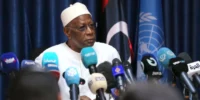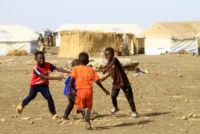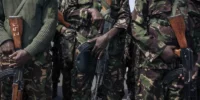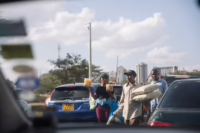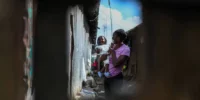
Trade pact would be a bonanza for Africa — if it can be made to work
The United States, Mexico and Canada trade with one another under a pact that replaced the long-standing North American Free Trade Agreement, or NAFTA. The Europeans have their single market and common currency. Southeast Asian countries have a free-trade agreement. And 11 Pacific Rim countries have formed their own free-trade group with the unwieldy acronym CPTPP.
But what stands to be the behemoth of global trade pacts is one you’ve probably not heard of: the African Continental Free Trade Area, or AfCFTA.
Its scope is enormous, comprising 54 countries, 1.3 billion people and a combined gross domestic product of $3.4 trillion.… Seguir leyendo »





